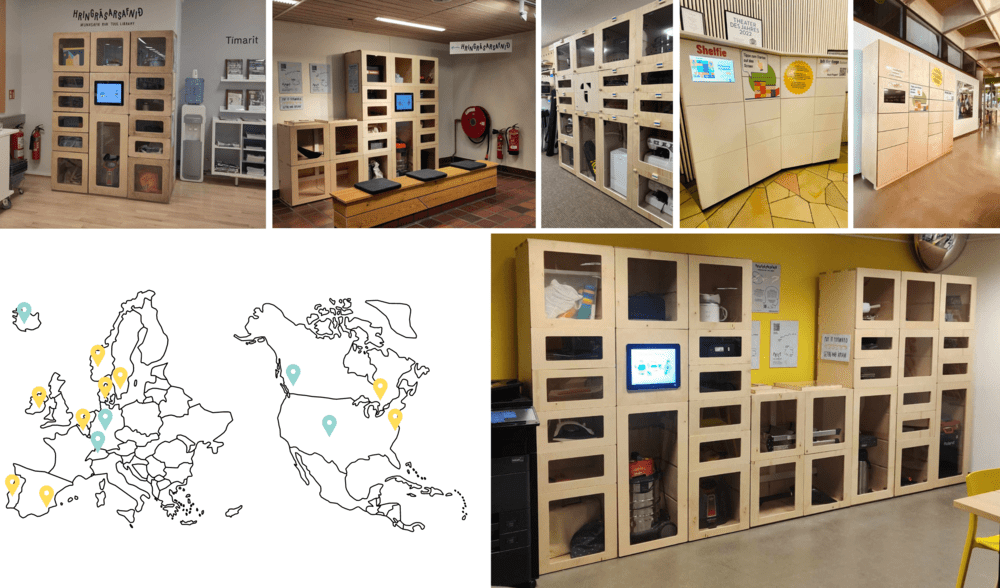Circular Library Network: Fostering Community Bonds with Sharing Stations
DEFINITE-CCRI is excited to guide four of our projects in the next stage of the project development assistance (PDA) program. To offer more insight into these projects, we’re continuing a series of interviews with the project developers. In this interview, we spoke with Anna De Matos, CEO and founder of the Circular Library Network, a project based in Reykjavik, Iceland.
Please introduce your project in a pitch format and share its origin story. What inspired the initial idea, and how did you take it from concept to reality?
Circular Library Network (CLN) provides the infrastructure for communities to share tools and household items, reducing the need for purchases. Initially launched as a grassroots initiative, Tool Library, it was inspired by the growing problem of e-waste and underutilised household items. Starting from there, we have evolved into a tech company, developing a modular and adaptable system that combines hardware, software, and a social platform to make sharing more scalable and convenient.
In what ways does your project contribute to accelerating the transition to a circular economy?
Our infrastructure helps communities transition from linear to circular models. By facilitating sharing, CLN reduces consumption—and consequently, waste. Sharing is a more sustainable way of living, as it keeps products in circulation and reduces the need to purchase everyday items.
Why did you decide to apply for DEFINITE-CCRI support?
We applied for support from DEFINITE-CCRI to accelerate the adoption of circular models across cities and industries. Their focus on investment in the circular economy aligns perfectly with our mission to expand the sharing economy and drive meaningful, lasting change. Our goal is to develop the solutions that communities need, and this opportunity enables us to demonstrate how circular business models can be both profitable and investable.
How has your experience with DEFINITE-CCRI been so far?
Our experience with DEFINITE-CCRI has been enlightening and transformative. We’ve achieved key milestones such as securing international pilot programs and deepening our understanding of how to scale circular economy solutions across diverse regions. This has been crucial for our strategic growth. The support from Bankers without Boundaries has been instrumental in helping us convey our financial strategy in a more standardised way, addressing one of our initiative’s major challenges.
If you received unlimited funding, how would your project evolve and what impact do you envision it having on the industry and beyond?
With unlimited funding, we would scale globally, ensuring that every city has access to a Circular Library system to promote more sustainable production and consumption. This would not only reduce waste but also shift how people view consumption. We believe that access to essential items is a key factor in community well-being, and by providing communities with this access, we can deeply transform them. A global Circular Library Network would have a significant social impact, helping industries and individuals move towards more sustainable, circular models worldwide.
How have your solutions been used so far? What items have been mostly borrowed through your software solution?
Our system has been implemented in libraries, community hubs, supermarkets, co-working spaces, real estate, universities and municipalities. Most borrowed items include tools (drill), household goods (ice cream machine), and small electronics (projector). These have been borrowed hundreds of times, significantly cutting down on unnecessary purchases and waste.
How many Circular Libraries are already out there and what has the user response been so far? What would be your ideal location and client?
We currently have 12 Circular Libraries running in Iceland, Germany, Switzerland, and North America, with very positive user feedback. We are currently preparing for our first-ever pre-sale, during which we aim to onboard between 100-300 new customers within the next 6 months. People love the convenience and the cost-saving benefits. Our ideal clients are municipalities, universities, and real estate operators who want to reduce waste and engage their communities.
Publishing date:


